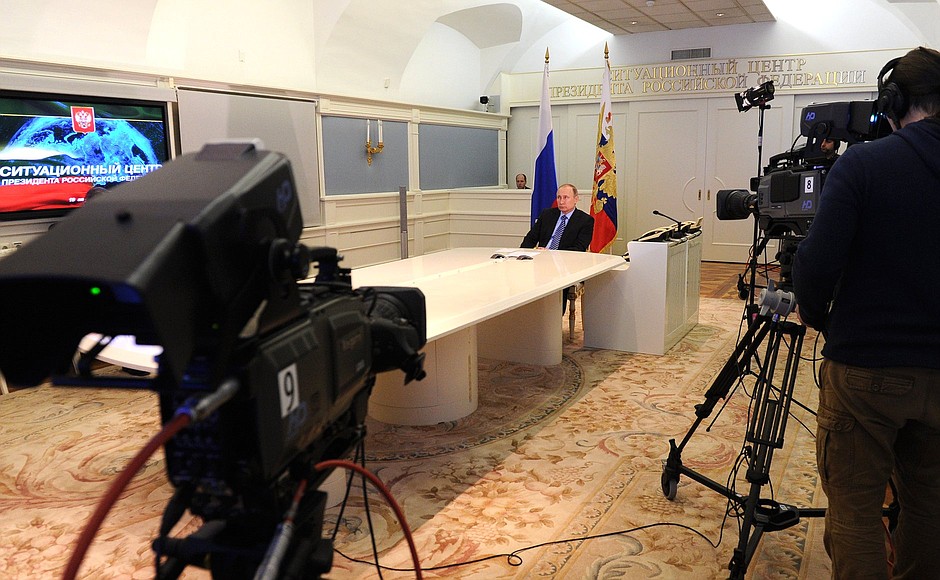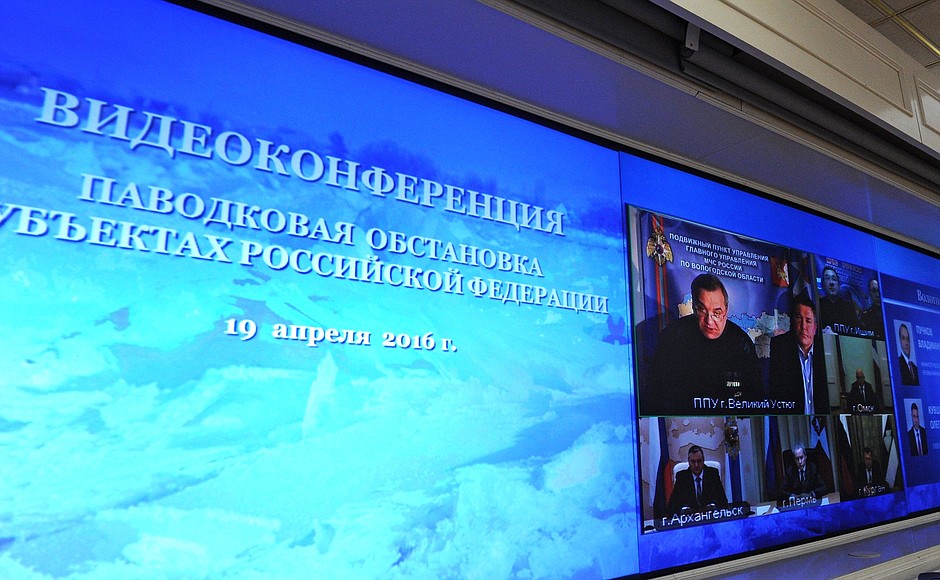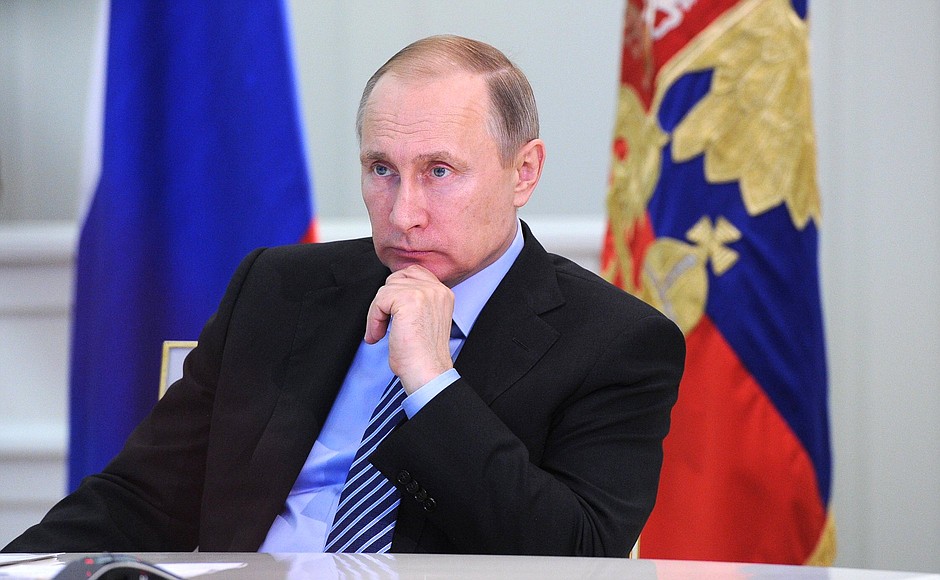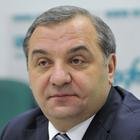Excerpts from transcript of the videoconference on relief efforts following floods
President of Russia Vladimir Putin: Good afternoon, colleagues,
I would like to discuss with you the situation with the spring floods that have affected several regions.
We stay in contact with many of you but the problem is spreading. The floods have affected a number of Russian regions, notably in the Urals, Siberian and Northwestern federal districts.
I see that the federal authorities, the Emergencies Ministry, other agencies, and regional and municipal authorities have established good working cooperation. Nonetheless, considering the scale of the problem, I would like to listen to your reports via videoconference without sidetracking you from your daily work.
The Vologda, Tyumen and Omsk regions have been hit the hardest. Let’s listen to what you have to say. I would like to hear from you personally what is being done to alleviate the problems and help the people affected; what is being done to evacuate the residents and provide supplies for the temporary accommodation. This is a large set of issues.
(Heads of the Vologda, Arkhangelsk, Kurgan, Omsk, Tyumen regions and the Perm Territory reported to the President on emergency relief measures in flooded areas.)
Minister of Civil Defence, Emergencies and Disaster Relief Vladimir Puchkov: Mr President, currently the Vologda Region is experiencing the greatest difficulties. Today between 9:00 am and 1:00 pm, the water level in Veliky Ustyug dropped by 100 cm, and the decrease continues. Therefore, we made a decision to begin remedial operations. Additional emergency workforce from neighbouring regions have been sent, including rescuers, power recovery team, utilities and road recovery teams, and all of the services required to restore the infrastructure in flooded areas in the shortest time possible.
As concerns the spreading of floods across Russia, the Emergencies Ministry along with the regional and local authorities continue to take action to alleviate hazard risks and respond to potential emergencies based on available forecasts. Overall, the spring floods across the country are progressing as expected. We continue to take additional preventive measures based on past flood experience in the regions that were affected the most and where the relief measures were prompt and sufficient.
Second, our experts are constantly updating flood forecasts for large rivers and water basins. We have built up a powerful team of manpower, management, provided floating equipment and aviation. The team includes regional branches of the Emergencies Ministry, the Interior Ministry, the Defence Ministry, the Healthcare Ministry and other institutions, regional forces, and resources of vertically integrated companies.
Next, we are constantly monitoring all hydraulic structures, with a special focus on unattended hydraulic structures, old dams and (environmental) protection facilities that required maintenance before the spring flood.
Third, we are constantly holding drills and training for staff. Gauging stations are under strict control. All potentially hazardous river sections are being monitored, with temporary shelters and infrastructure ready. We have all necessary supplies, including petrol and explosives. Other measures are being taken. In any bottleneck situations we are taking prompt decisions and send over explosives or explosive experts and any other staff required for emergency relief.
Currently the floods are the worst in Siberia. We are completing anti-flood measures in the Urals and the Volga Region. We will accomplish them next week in the Northwest as well.
Floods have affected 119 localities in 18 Russian regions. Over 8,000 private houses, courtyards and summer cottages with a population over 12,000 people were waterlogged. The authorities provided life support for the flood victims, update them on the latest developments, continuously monitor the situation, patrol housing in the flooded areas and carry out other essential measures. Our priority is to render assistance and support to people in these difficult circumstances, organise food supply, including hot meals, provide medical aid and ensure fail-free performance of all social services.
In general, spring floods continue. We are expecting many difficulties on the main rivers in Siberia and the Far East and are focusing our attention on Yenisei, Lena and Amur with their tributaries.
Mr President, the management bodies and forces of the unified system of emergency prevention and relief continue carrying out anti-flood measures, helping people in the flooded areas during this period and supporting the operation of local government bodies and all services that are working in difficult conditions.
This completes my report.
Vladimir Putin: Ok, Mr Puchkov.
Colleagues, we have an established plan of action for such circumstances as well as relevant legislation. It requires hard work, paying primary attention to these problems. This applies to the top officials as well. Nobody should delegate these issues to subordinates. The top officials must personally deal with the problems facing the regions. They should pay special attention to helping people and restoring infrastructure and life support facilities.
I would like to ask the Emergencies Minister to brief me on the developments, at any time if need be.
I wish you success. Thank you.



